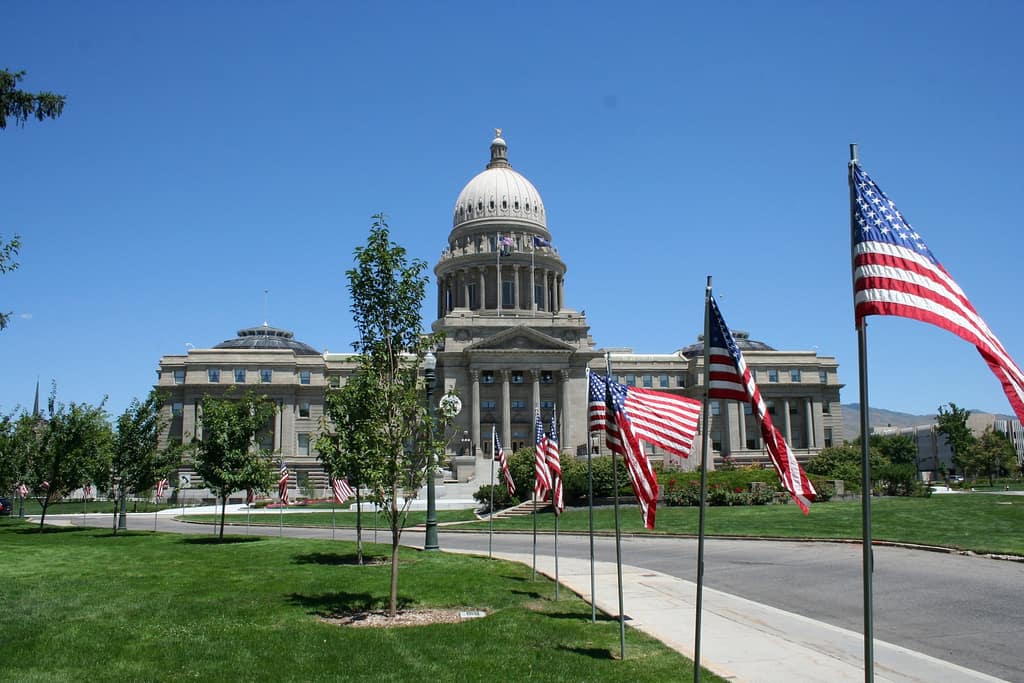


Idaho lawmakers are expected to vote on a single bill when they meet in special session on Monday. But they’re voting on a topic that is even bigger, one most of the mainstream media have gotten horribly wrong in the last several weeks: federalism.
Federalism is that principle that the states have a role separate and distinct from that of the federal government; that power doesn’t belong in a single, centralized government; that the federal government cannot coerce states into taking actions that they choose to not take.
States are separate and independent sovereigns that “sometimes have to act like it,” U.S. Supreme Court Justice John Roberts wrote in his 2012 ruling on Obamacare’s Medicaid expansion provisions. Federalism allows states to set their priorities, develop their own solutions and compete against other states for superior results.
The 2015 special session is, plainly put, the product of the federal government telling states—all states—that they must pass certain legislation by a congressionally-established deadline. Such an edict not only flies in the face of federalism, it upends it totally.
It’s a proposition that is made worse by the fact that lawmakers are being told they cannot vote no, or they risk losing millions of dollars and access to programs intended to make the delivery of services (in this case, the delivery of child support checks) possible. That is clearly the opposite of federalism. Therefore, legislators who opposed the federal government’s actions are not executing on an “anti-federalism” agenda.
Yet that’s not what you read in an increasingly activist Idaho media. Newspapers are reporting that the actions of lawmakers rejecting conformity to a federal mandate is “anti-federalism.” By way of example, a May 10 Twin Falls Times News editorial said lawmakers who voted against Senate Bill 1067 were “seeing the issue as an easy chance to trumpet some anti-federalism rhetoric …” Wrong. Plainly backwards.
How important is federalism in the lexicon of American governance? U.S. Supreme Court Justice Antonin Scalia, in a speech a week ago, said it is indispensable. It is even more important than the Bill of Rights.
“Every tin horn dictator in the world today, every president for life, has a Bill of Rights,” Scalia is quoted as saying in the Heritage Foundation’s Daily Signal. “That’s not what makes us free; if it did, you would rather live in Zimbabwe. But you wouldn’t want to live in most countries in the world that have a Bill of Rights. What has made us free is our Constitution.”
Scalia added, and this is a critical part, “The genius of the American constitutional system is the dispersal of power. Once power is centralized in one person, or one part (of government), a Bill of Rights is just words on paper.”
In his inaugural address in January, Gov. Butch Otter promised to defend federalism. He said, “For anyone who doubts my commitment to resisting with all that I am those federal policies that undermine the tenets of federalism or state sovereignty, watch closely over the next four years. You will see that the fiery idealism of my youth has only been supplanted by a strong and tempered confidence, born out of time and experience.” I’m guessing the governor didn’t anticipate he’d actually be called so quickly to follow through on his words.
Federalism is what is being undermined when a state gives into federal blandishments. When Congress demands obedience from all 50 states—and gets it—the foundational structure of our system of government has been imperiled. The fate of federalism is what lawmakers will decide Monday.


